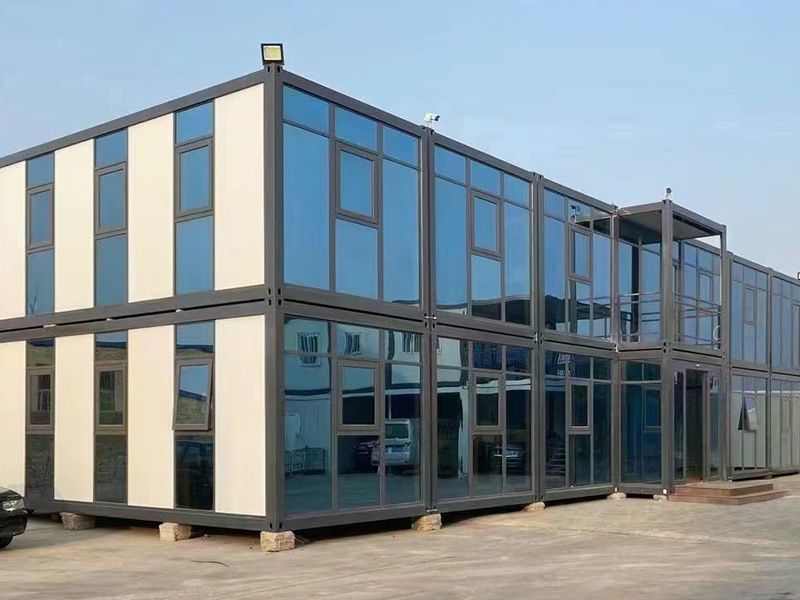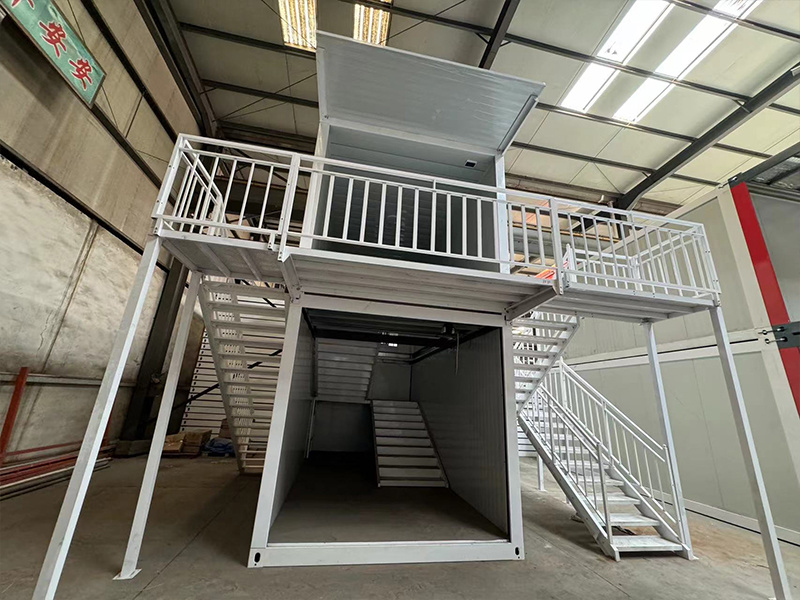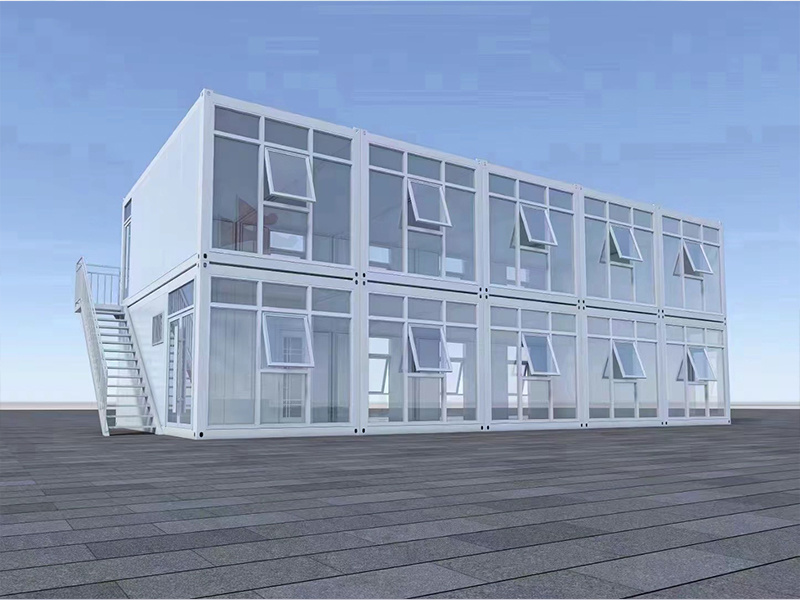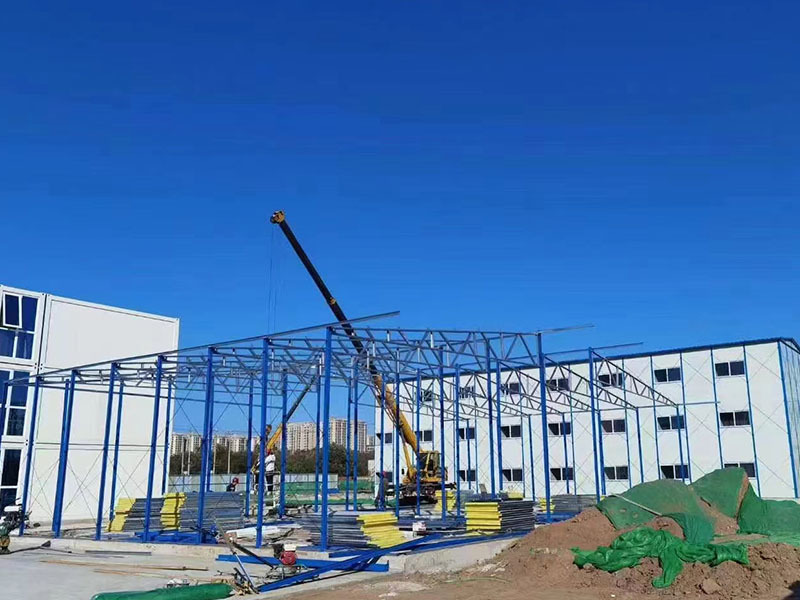Exploring the Benefits of Modular House Construction: A Modern Approach to Housing
Release Time:
Jul 09,2025
Modular house construction has emerged as a transformative trend in the building industry. This innovative method involves prefabricating sections of a home, known as modules, in a controlled factory environment. These modules are then transported to the construction site, where they are assembled into a complete structure. This approach offers numerous benefits that cater to modern living needs a
Modular house construction has emerged as a transformative trend in the building industry. This innovative method involves prefabricating sections of a home, known as modules, in a controlled factory environment. These modules are then transported to the construction site, where they are assembled into a complete structure. This approach offers numerous benefits that cater to modern living needs and environmental considerations.
One of the primary advantages of modular house construction is efficiency. Traditional building methods can be time-consuming, often plagued by weather delays and labor shortages. In contrast, modular construction allows for simultaneous site preparation and module production, significantly reducing the overall timeline from concept to completion. Many modular homes can be finished in just a few weeks, providing homeowners with quicker access to their new spaces.
Sustainability is another critical factor driving the popularity of modular construction. By employing factory-based production techniques, waste can be minimized, and materials can be optimally utilized. This not only reduces the environmental impact but also allows for greater control over the building materials used, promoting energy efficiency and sustainability. Many modular homes are designed to incorporate green building practices, such as energy-efficient insulation and renewable energy sources, which can contribute to lower utility bills and a reduced carbon footprint.
Design flexibility is also a hallmark of modular house construction. Contrary to the misconception that modular homes lack customization options, modern modular designs offer a wide range of architectural styles, layouts, and finishes. Homeowners can collaborate with architects to create personalized living spaces that reflect their tastes and needs, while still benefiting from the efficiency of the modular process. This adaptability means that modular homes can cater to various preferences, from contemporary aesthetics to traditional designs.
Additionally, modular housing often provides enhanced quality control. Since the modules are built in a factory setting, they can be constructed under strict supervision, ensuring high standards of craftsmanship and materials. This controlled environment also mitigates risks associated with weather-related damage during the construction process.
Another aspect worth noting is the cost-effectiveness of modular construction. While the initial investment may vary, the overall savings from reduced construction time, lower labor costs, and energy efficiency can make modular homes a financially attractive option in the long run. Homeowners often find that the longevity and durability of a modular home further contribute to its value.
In conclusion, modular house construction presents a modern solution to traditional housing challenges. By combining efficiency, sustainability, design flexibility, and quality control, it offers a compelling alternative for those seeking a new home. As the building industry continues to evolve, modular construction is poised to play a significant role in shaping the future of housing.
One of the primary advantages of modular house construction is efficiency. Traditional building methods can be time-consuming, often plagued by weather delays and labor shortages. In contrast, modular construction allows for simultaneous site preparation and module production, significantly reducing the overall timeline from concept to completion. Many modular homes can be finished in just a few weeks, providing homeowners with quicker access to their new spaces.
Sustainability is another critical factor driving the popularity of modular construction. By employing factory-based production techniques, waste can be minimized, and materials can be optimally utilized. This not only reduces the environmental impact but also allows for greater control over the building materials used, promoting energy efficiency and sustainability. Many modular homes are designed to incorporate green building practices, such as energy-efficient insulation and renewable energy sources, which can contribute to lower utility bills and a reduced carbon footprint.
Design flexibility is also a hallmark of modular house construction. Contrary to the misconception that modular homes lack customization options, modern modular designs offer a wide range of architectural styles, layouts, and finishes. Homeowners can collaborate with architects to create personalized living spaces that reflect their tastes and needs, while still benefiting from the efficiency of the modular process. This adaptability means that modular homes can cater to various preferences, from contemporary aesthetics to traditional designs.
Additionally, modular housing often provides enhanced quality control. Since the modules are built in a factory setting, they can be constructed under strict supervision, ensuring high standards of craftsmanship and materials. This controlled environment also mitigates risks associated with weather-related damage during the construction process.
Another aspect worth noting is the cost-effectiveness of modular construction. While the initial investment may vary, the overall savings from reduced construction time, lower labor costs, and energy efficiency can make modular homes a financially attractive option in the long run. Homeowners often find that the longevity and durability of a modular home further contribute to its value.
In conclusion, modular house construction presents a modern solution to traditional housing challenges. By combining efficiency, sustainability, design flexibility, and quality control, it offers a compelling alternative for those seeking a new home. As the building industry continues to evolve, modular construction is poised to play a significant role in shaping the future of housing.
Key words:
What Else Might You Learn?











